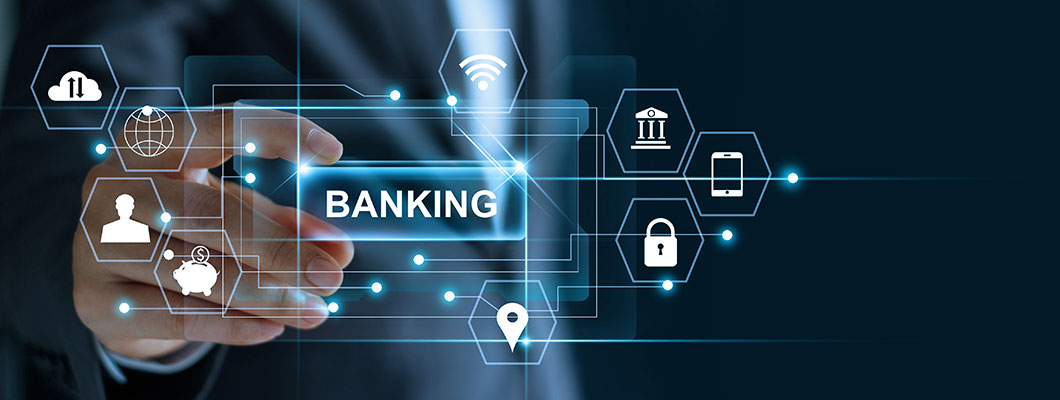
Top 25 banking terms that you should know!
Posted on Friday, November 18th, 2022 | By IndusInd Bank
As per RBI, the banking sector in India is well regulated with 12 public sector banks, 22 private banks, 46 foreign banks, 56 regional rural banks, 1485 urban cooperative banks and 96,000 rural cooperative banks. This signifies that as an Indian citizen, you will definitely come across multiple banking terminologies that are difficult to comprehend.
So here are some of the top banking terms that you should know before visiting any bank:
- KYC (Know your customer): KYC is a key principle process for identification of an individual/corporate opening a bank account. The customer identification entails verification through an introductory reference from an existing account holder/a person known to the bank or on the basis of documents provided by the customer. This establishes the correct identity of customers and ensures that no fraudulent activity is taking place.
- MICR (Magnetic Ink Character Recognition): MICR is a 9-digit code printed on cheques that uniquely identifies the bank & branch participating in Electronic Clearing System (ECS). It comprises of 3 parts:
i. First 3 digits representsthe city code.
ii. Middle 3 digits representsthe bank code.
Iii. Last 3 digits representsthe branch code
- IFSC (Indian Financial System Code): IFSC is used as an electronic payment system for National Electronic Fund Transfer (NEFT) and Real Time Gross Settlement (RTGS). IFSC is an 11-character code where the first 4 alphabetic character presents the bank name, and the last 6 characters (can be numeric or alphabetic) represent the bank branch. The 5th character is zero (0) and is currently reserved for future use.
- NEFT (National Electronic Fund transfer): NEFT is an electronic fund transfer system that was introduced & managed by the Reserve Bank of India (RBI). It allows quick electronic transfer of money between banks throughout India. Earlier, RBI had fixed timings for processing NEFT but from 2020, NEFT transactions can be processed 24×7. There is no limit on NEFT transactions but a fee is applicable depending on the amount being transferred.
- RTGS (Real Time Gross Settlement): RTGS allows transfer of money and/or securities instantaneously across the banking system in India. It is safe, secure, reliable & maintained by Reserve Bank of India (RBI). RTGS is used for high value transactions with minimum RTGS limit of Rs 2 lakh. A nominal fee or charge
sare applicable depending on the transaction amount.
- IMPS (Immediate Payment Service): IMPS is an immediate payment service for inter-bank electronic fund transfer which is available 24/7/365 in India. With IMPS you can send money via your mobile number, MMID or bank account number & IFSC.
- Savings account: It is an interest-bearing bank account that keeps your money safe and allows you to earn interest on your funds. A savings account comes with add on benefits like debit card facility, low balance requirement, internet banking, mobile banking & attractive interest rates.
- Current account: It is a non-interest-bearing bank account for businesses that have a high number of transactions. A current account comes with no restriction on the number of transactions (amount deposited or withdrawn) with add-on benefits of chequebook, debit card, mobile & internet banking. Here are the key features & benefit of a current account.
- NPA (Non-Performing Assets): NPA is any advance or loan that is overdue for more than 90 days. As per RBI, “An asset becomes non-performing when it ceases to generate income for the bank”. For a bank or lender, the interest is the earning or main source of income therefore when the borrower starts defaulting on his payment it becomes a problem for the lender.
- Overdraft: When a bank allows the execution of a transaction even when the customer bank account lacks funds is termed as overdraft. It helps customers to pay bills even when there are insufficient funds.
- Credit History: It is a record of debt repayments such as credit card & loan. A credit history shows whether you paid your bills or EMI on time, with delayed fees or defaulted.
- Fixed-rate interest: It is a kind of an interest rate on a loan or borrowing that does not fluctuate during a fixed period of time.
- Floating rate interest: It is also known as variable or adjustable interest rate in which debt instruments like loan or borrowing does not have a fixed rate of interest.
- Collateral: When an asset is pledged as security for the repayment of a loan or borrowing then it is termed as collateral. This can be forfeited by the lender in case of default.
- Liquidity: In financial markets when an asset can be sold without impacting its fair price is termed as liquidity.
- Capital Gain: Any profit or gain realized by the sale of an asset like stock, bond or real estate is known as capital gain.
- ATM (Automatic Teller Machines): A specialized computer that smoothens banking transactions like withdrawal or deposit of funds, printing account statements and checking account balance is known as ATM (automatic teller machines).
- Debit card: When a payment card is allowed to deduct money for the purchase of goods or services directly through your bank account then it is termed as debit card. A debit card eases the need for carrying cash & can be used for cash withdrawal from ATM.
- Credit card: It is a financial instrument for payment that is issued by commercial bank through which the card holder can borrow funds to pay for goods or services. This credit card comes with a condition for card holders to pay back the borrowed money at the time of billing date or over time with interest on principle borrowing.
- Repo rate: Rate at which Reserve Bank of India lends money to commercial banks in the event of any shortfall of funds is termed as repo rate.
- Reverse repo rate: When commercial banks have surplus of funds then they can lend it to Reserve Bank of India to earn interest on it. This interest rate is termed as reverse repo rate.
- Basis point: In finance domain the standard measure of interest rates is basis point where one basis point is equal to 1/100th of 1% or 0.01%.
- Solvency: The ability of a company to fulfill its liabilities and other financial obligations in order to carry the business is termed solvency. It is a representation on of the financial health of the company. When a company is unable to generate enough cash from its business operations to fulfill the debt obligations then it is at risk of insolvency.
- Bank ombudsman: Reserve Bank of India has created a body named Bank ombudsman an to address and resolve the grievances and complaints of the bank customers. An ombudsman is usually a senior official appointed by the Reserve Bank of India who addresses the complaints & grievances of customers. You can submit your grievances related to IndusInd bank here.
- Processing fees: A preset fee charged by the financial service provider for execution of any financial transaction is termed as processing fees. It may be fixed flat fee or a % of transaction value.
Disclaimer: The information provided in this article is generic in nature and for informational purposes only. It is not a substitute for specific advice in your own circumstances. Hence, you are advised to consult your financial advisor before making any financial decision. IndusInd Bank Limited (IBL) does not influence the views of the author in any way. IBL and the author shall not be responsible for any direct/indirect loss or liability incurred by the reader for taking any financial decisions based on the contents and information.



 Offers
Offers Rates
Rates Debit Card Related
Debit Card Related Credit Card Related
Credit Card Related Manage Mandate(s)
Manage Mandate(s) Get Mini Statement
Get Mini Statement
 categories
categories Bloggers
Bloggers Blog collection
Blog collection Press Release
Press Release


